Creating narratives of resilience with people affected by cancer
The psychological toll that accompanies living with cancer can be immense. To aid the mental well-being of people affected by cancer, Dr Laura Béres, from King’s University College at Western University, and Tracey Jones, from Wellspring London and Region Cancer Support Centre, in Canada, successfully sought research funding for the development of the Journey Through Words programme, which uses the practices of narrative therapy and narrative medicine to help foster stories of resilience and hope in people with cancer and their families.
Talk like a social work researcher
Group therapy — a form of psychotherapy where a small number of people meet and discuss their problems together, with the guidance of a therapist or co-therapists
Narrative medicine — a discipline initially developed to support medical students in maintaining their empathy with patients through close analysis of literature and the use of creative writing. Over time, doctors began to suggest the use of creative writing for their patients in order to assist them in expressing themselves
Narrative therapy — a form of counselling and community work that centres people as the knowledge-holders of their own lives, creating distinctions between people and their problems and helping people create more constructive narratives that focus on their strengths and preferred ways of living instead of focusing too much on the problem narrative
Social work — a form of work carried out by trained professionals that aims to help people, groups and communities with social disadvantages and personal problems. In some countries, like Canada and US, registered social work professionals are also permitted to provide psychotherapy if they have received sufficient training and ongoing professional supervision
The direct treatment of physical illness lies at the heart of medicine, but to nurture people’s long-term well-being, medical care cannot stop there. Terminal or chronic diseases can have a heavy impact on people’s mental health. It can be easy to lose hope or to focus only on the pain associated with the disease. This applies not just to people with these diseases, but also to those who care for them, such as family and friends.
A way of helping people to improve their mental well-being is by helping them change their perceptions of their lives and be mindful of which of their experiences with the disease they dwell on the most. The Journey
Through Words programme aims to do exactly this, applying the twin practices of narrative medicine and narrative therapy in group sessions using creative writing techniques.
Narrative therapy and narrative medicine
The narrative therapy approach was first developed in the 1980s and is now used in a multitude of therapeutic contexts. “Narrative therapists are aware that the stories people tell about themselves shape how they think about themselves and how they act,” says Laura. “Narrative therapists aim to assist people in exploring events in their lives that they have previously not put into words, and which might offer some openings into preferred storylines for themselves.” Narrative therapy enables people to distance themselves from the label of a diagnosis and feel more like a person who happens to be living with a disease. It can guide people to focus on the parts of their life story that have helped them develop their resilience and which can continue to support them.
Narrative medicine differs to narrative therapy in that it was initially developed for training medical students, rather than as a therapeutic method. However, the approaches are similar in their understandings of the importance of narratives in people’s lives. Medical students and doctors recognised how therapeutic it was for themselves to engage with creative writing, and they began to suggest others could benefit from it. The process also assists medical professionals in listening more deeply to a person’s whole story, beyond a focus on illness.
The origins of Journey Through Words
Journey Through Words came about when four undergraduate medical students contacted the Wellspring London and Region Cancer Support Centre. “Keen to support people living with cancer and their carers, they enquired whether they might be able to offer a creative writing group influenced by narrative medicine, and Tracey, the Executive Director of the centre, reached out to consult with me as a professor who has taught narrative therapy to social work students for many years” says Laura. “Together, we set the wheels in motion to apply for and, thankfully, receive research funding.” The team Laura built comprised people from different professions, including students of both medicine and social work. “The project provided an invaluable opportunity to work together and learn from one another,” she says.
After discussing the overlaps between narrative therapy and narrative medicine, the newly-assembled team felt it was best to combine the two approaches. This was principally because narrative therapy goes beyond listening to people telling their illness stories; it helps them focus on other events in their lives that can go towards constructing storylines to better their mental well-being. “Narrative therapy insists that services do not overly focus on the problem storyline (based on the sadness and pain related to their diagnosis and treatment) but encourages time spent on preferred storylines, on what is sustaining people,” says Laura.
Narrative therapy sessions
Since setting up the programme, several group sessions have been run for members of Wellspring. Each session consists of therapists meeting with the group of people affected by cancer for ninety minutes once a week, for six weeks. “Each session starts with a brief check-in, followed by a description of that week’s theme,” says Laura. “Group members are then given a carefully-crafted creative writing prompt, and have twenty minutes of silent writing to address it.” Afterwards, group members are invited to share their experience of writing and what they wrote, if they want to. This is followed by a group discussion.
Reference
https://doi.org/10.33424/FUTURUM467
Rather than ignoring or diminishing group members’ sadness and worry about their illnesses, these sessions try to focus on what has kept them going each day, thereby constructing a more positive storyline of resilience. “Narrative therapists are primed to be curious and to ask questions about how people have kept going despite their problems,” says Laura. Narrative therapy conversational ‘maps’ are used to provide guideposts for the therapist to ask questions to ensure they stay focused on what has been most helpful for the person with cancer in maintaining hope in their lives despite the worries and side effects of cancer treatment.
The value of group discussions
Narrative therapy is often done one-on-one, but Laura believes that, in this context, it is best combined with group therapy. “Group therapy theory argues for the connection and support offered by group settings,” says Laura. “In sharing their creative writing in a therapeutic context, themes of hope and resilience are reinforced and supported by others in the group.” Nevertheless, there are challenges to this approach. “Since Wellspring offers many drop-in groups, assessing people’s readiness to commit to six weeks of a group session was not the usual approach at the centre,” explains Laura. “The fact that people had to register without us having the chance to speak individually with them ahead of the group starting meant it was sometimes challenging to maintain continuity. Supporting the movement towards a preferred storyline could be challenging if a member missed too many sessions. There was also a risk of undermining the connection between members.”
Despite these challenges, the group adapted and has seen strong positive outcomes. “I found it particularly rewarding to see group members show awe and surprise about how meaningful their own and others’ writing was,” says Laura. “It was wonderful to hear of their stories of resilience, friendships, connections and hope that kept them going.” The group members connected with one another quickly and were soon comfortable to share vulnerable moments of their lives – which the team believes was accelerated through the creative writing aspect. “For me, participants’ resilience also seemed to have a sense of the spiritual,” says Laura. “For some, this meant going to church, while, for others, it meant walking in nature or watching the birds in their gardens.”
The programme has led to real benefits for group members’ well-being, and its outcomes have been the subject of two conference presentations. The team has also put together an open-access facilitator’s handbook drawing on the lessons learnt through the sessions. It hopes these dissemination methods will lead to more social service and medical facilities taking up their own Journey Through Words programme.
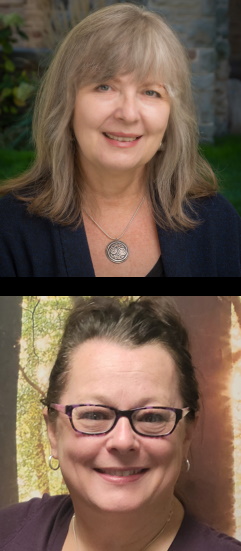 Dr Laura Béres
Dr Laura Béres
School of Social Work, King’s University College at Western University, Ontario, Canada
Fields of research: Social work practice, narrative therapy, spirituality, critical reflection on practice
Tracey Jones
Executive Director, Wellspring London and Region Cancer Support Centre, Ontario, Canada
Field of research: Anthropology
Research project: Journey Through Words: Narratives of the cancer journey – fostering resilience within members of a creative writing group
Funder: Social Science and Humanities Research Council (SSHRC) Partnership Engagement Grant, Canada
About social work
Social work focuses on practice-based work with individuals and communities, through to academic study of social theories – and everything in between. However, in each area of social work, the common factor is a consideration of the ‘person in environment’. Social work careers promote positive social change and development, at the individual, community and regional level. Laura explains:
“Social work is a broad field. It covers direct practices like counselling, as well as community practices, policy development, and child protection work. It’s possible to pursue research in social work in any of these areas with a focus on philosophy, practice theory development or building the evidence base behind different practices.
“This broad scope has allowed me to shift my focus as elements of my practice evolve. Recently, I have enjoyed researching how to better teach skills of critical reflection in practice, so that students are more able to sustain these skills after graduating and throughout their careers.
“The ecological crisis is the focus of a new area of important research in social work. Many young people are experiencing ecoanxiety, and social workers and therapists are being called upon to support them, while also contributing to practices that will ensure a just and sustainable future.
“Other contemporary issues in need of ongoing research developments include the traumas of war, relocation, poverty and homelessness. Loneliness is another area of research that has arisen significantly in the last decade, especially since the COVID-19 pandemic. I predict that the rise of artificial intelligence in society will bring its own research needs for social work. Anything that is happening socially or environmentally will impact individuals and will, therefore, be relevant to social workers, research and education.”
Meet Laura
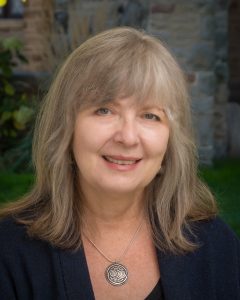
After completing a BA in psychology, I pursued a Master’s in Social Work (MSW). I realised it would be an efficient route to provide counselling, and from the first course, it felt like the right field for me. I appreciate social work’s focus on the ‘person in environment’, which allows us to consider the impacts of family and society on individuals.
A woman I was counselling told me she read romance novels to learn how to behave so her husband would not beat her. She thought that being the ‘perfect heroine’ would mean he wouldn’t be angry with her. I realised I had heard many people talk about their engagement with popular culture, and I began to realise that media held a powerful message about the romanticisation of abuse.
My MSW had not prepared me to deal with this, so I pursued a PhD in critical pedagogy and culture studies. Here, I came across narrative therapy, which I realised would give me a way to assist people with protecting themselves from harmful but powerful social ideas.
While I was working in direct social practice, the concept of mindfulness became more widespread. I began to explore links between therapy and spirituality, including relationships with different cultures. This has been immensely rewarding. Many Canadian academics are committed to decolonising our practices, and spirituality provides a bridge for connection to Indigenous communities and others.
The publication of my latest book was a proud moment for me. It is entitled The Language of the Soul in Narrative Therapy: Spirituality in Clinical Theory and Practice and brings together many of my areas of interest. I expect my next book will be about everyday spirituality, and I have a couple of research projects underway that will contribute to this book.
Laura’s top tips
1. Discover what helps you feel the most authentic. If you feel drawn to training in counselling or social work, begin by volunteering in settings where you can try out some skills and see if you are truly passionate about this area.
2. There are so many areas of specialisation available. Always keep an open mind and look out for new opportunities.
Meet Tracey
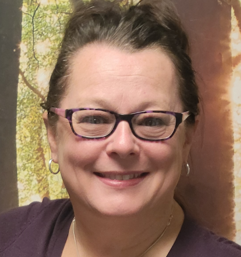
My field of expertise is anthropology – the study of human cultures and societies. I have studied marginalised groups for many years, and working with people living with cancer has yielded some fascinating research. I am invested in improving the lives of these people and their caregivers.
Working as an educator in healthcare has shaped my perspective in life. I have worked in neurology (which focuses on conditions related to the nervous system) and oncology (the treatment of cancer) for over two decades. One of my most impactful jobs, with the Brain Tumour Foundation of Canada, involved working with children and adults who faced a terminal diagnosis, where treatment wasn’t possible. This taught me to understand what hope meant in their eyes. It doesn’t always mean a cure; sometimes, a peaceful death is something to hope for. This reshaped my way of thinking permanently.
Every day looks different in my job. I might meet with various board committees to report on our community work, meet staff members to support their work, and have discussions with community partners and volunteers. I also oversee two office locations, so I’m always busy!
One of my proudest career moments was organising retreats for young adults with cancer. It allowed them to connect with each other and understand that they weren’t alone in their experiences. I remember a games night on our first retreat that involved so much laughter, I felt my heart could burst. It was the most beautiful thing I had ever witnessed. I knew I was making the impact that I had always dreamt of.
While working for Wellspring, I aim to contribute as much as I can to the development of support and resources for underrepresented groups. This includes more work with young adults, men, and minority groups such as our Indigenous communities. We recognise that our current Wellspring model isn’t one-size-fits-all, and we’re always looking for creative ways to be inclusive and meet the needs of our communities. I’m grateful to be a part of this movement.
Tracey’s top tips
1. Take an interest in what is happening around you. Try to improve any situation. There are a lot of not-for-profits in need of great leadership from people with kindness, empathy, an interest in learning, and engagement with the people they serve.
2. Humility and the vision to see beyond the immediate is essential.
Leah Getchell
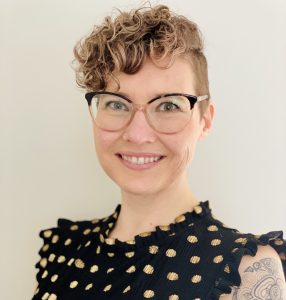
Research Assistant, Journey through Words programme / MSW student Can-SOLVE CKD Network, Vancouver, Canada
When I was in my last year of high school, I went on a social justice trip to the Dominican Republic. I knew from that point on that I wanted to be ‘of service’ to my local and global community. Since then, I have followed a few different career paths. I recently came back to my social justice roots and pursued my Master’s in Social Work (MSW).
My mom was a professional storyteller. From a young age, I was surrounded by stories and understood their power. Before applying for the MSW programme, I helped co-create the ‘Storytelling for Impact’ module for Can-SOLVE CKD, a national research community bringing people with lived experience of kidney disease and kidney donation together with researchers, healthcare providers and policymakers. That’s where I met Laura and learnt more about narrative therapy.
I have co-facilitated the programme at Wellspring twice now. I also assisted with the development of the facilitator’s handbook. It’s always challenging to facilitate a group using a new framework, especially as my prior knowledge of narrative therapy was purely academic. I began participating in the writing tasks myself, which helped me make stronger connections with what participants shared and relate it back to our therapy practices.
Facilitating the Journey Through Words programme has been very rewarding. I have learnt the practicalities of narrative therapy and its power in helping people focus on resilience, hope and life goals, rather than always returning to their challenging experiences. I have also discovered how creative writing, particularly the engagement with metaphor, can bring out emotions or ideas that would otherwise remain hidden.
We hope that others will use the facilitator’s handbook to run their own creative writing programmes. I have just completed running the programme for another organisation I worked with called Grounded Roots, Open Wings (GROW), where we deliver pre- and postnatal (before and after birth) care for families. I intend to use the programme for years to come.
I’m in my third career right now! I completed my MSW in my mid-40s. I hope this next phase of my career will allow me to support individuals and families within a healthcare setting, as well as in my private therapy practice.
Leah’s top tip
There isn’t one ‘right’ path. Though I thought about a career in social work during my 20s and 30s, I enjoyed meaningful jobs in other sectors. Follow your heart, listen to your intuition, and eventually you’ll get to exactly where you’re meant to be – even with some twists and turns along the way!
Valerie Johnston-Way
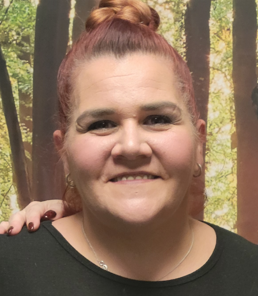
Program Manager, Wellspring London and Region Cancer Support Centre, Ontario, Canada
I always wanted to get into a helping profession of some kind. I found that social work offered a lot of flexibility in areas of focus. In my position at Wellspring, I get to use my education in social work alongside my experience in recreation to help those affected by cancer in my community.
As Program Manager at Wellspring, I supervise students from Kings University College. I helped the students develop this project, bringing along my knowledge of social programmes and the types of structure that would work best for Wellspring members. I had never developed a programme completely from scratch before, and it was certainly challenging at times, but very rewarding!
A lot of great work has come out of this partnership. The programme is positively assisting those living with cancer in our community. At Wellspring, we will continue to make sure the resources are available for anyone interested in leading their own programme, and to offer the programme at no cost for our members. I feel very privileged to be working at Wellspring and thoroughly enjoy the work that I do.
Valerie’s top tips
1. Life is too short to do something that isn’t fulfilling. Find something you are passionate about, that interests you, and that supports your growth and development.
2. Self-care and a work life balance are essential for you to be successful; you can’t help others if you are not helping yourself.
Amandi Perera

Schulich School of Medicine and Dentistry, Western University, Ontario, Canada
Personal experiences with healthcare, plus the continuous learning and problem-solving aspects of medical practice, led me to seek a career in medicine. I want to support people during vulnerable periods of their lives, and it is a career that will allow me to engage with people’s life stories, which aligns with my interest in the humanities.
I heard about the Journey Through Words programme through a medical student group on social media. I felt drawn to the intersection between the humanities and health, as well as the creative writing component. I have always enjoyed writing and worked as an editor-in-chief for a university publication, among other involvements.
I created new creative writing prompts, aligning them with narrative therapy themes and introduced writing tips. I also led one series of sessions alongside Leah and assisted with the creation of the handbook. Before getting involved, I had little exposure to narrative medicine or narrative therapy, so I spent a lot of time reading and learning from my team members.
Watching participants engage with the process and hearing how they benefitted was a key highlight. I also enjoyed the learning experience and sharing our work at the Canadian Association of Health Humanities conference, which could potentially lead to others implementing similar sessions.
While I don’t yet know which medical specialty to pursue, I am leaning towards those involving long-term engagement with people. I hope to continue learning about narrative medicine and therapy so that I can integrate it into practice.
Amandi’s top tip
When you enter a time-consuming degree or job, it’s easy to let your other interests take a backseat. Try and find ways to prioritise them and even connect them to what you are doing. I think it can end up multiplying the passion you have both for your career and other interests!
Pathway from school to social work
Laura recommends a broad educational basis for pursuing a career in social work. At school, relevant subjects might include psychology, biology, statistics and English, though many others can also lead to a relevant degree.
Relevant degrees at university include social work, psychology, sociology and anthropology. Courses focused on child and youth work, social justice and peace can also be highly relevant. The quickest route into social work is through a Bachelor of Social Work degree, with which you can practise entry-level social work. Many other positions require a Master’s of Social Work.
Explore careers in social work
• The Canadian Association of Social Work has a useful webpage describing the different types of social work and career paths to get there.
• Laura notes each Canadian province has its own professional social work body; checking their websites can help you understand what social work looks like in that province (e.g., the Ontario Association of Social Workers). Other nations have their own associations that you can find.
• According to Talent.com, the average social worker salary in Canada is around CAN $67,700.
Do you have a question for Laura, Tracey, Leah, Valerie or Amandi?
Write it in the comments box below and Laura, Tracey, Leah, Valerie or Amandi will get back to you. (Remember, researchers are very busy people, so you may have to wait a few days.)
2 Comments
Submit a Comment
Learn how stories are being used to engage people with history and heritage:
www.futurumcareers.com/can-spooky-stories-engage-people-with-history-and-heritage

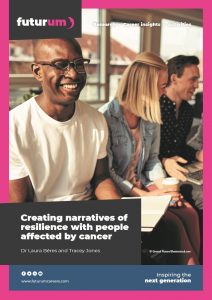
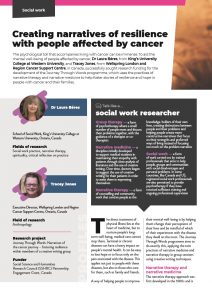

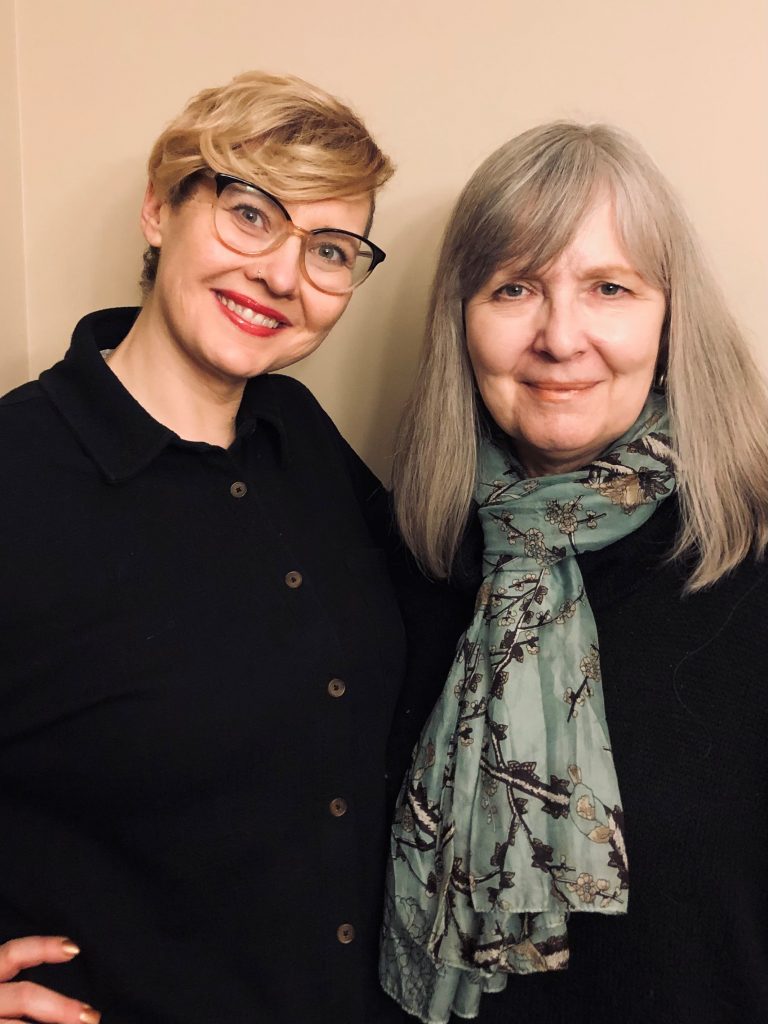

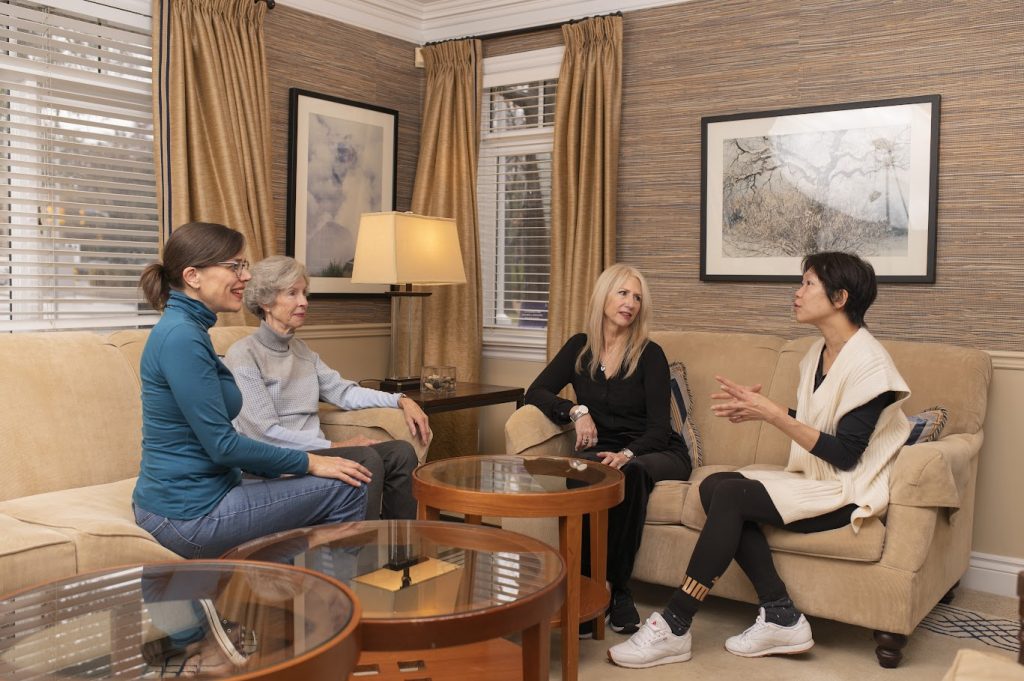


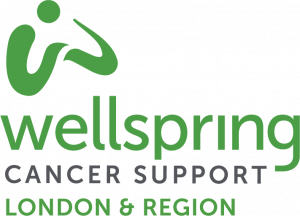
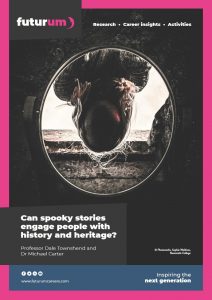
Laura (and Team)- Congrats! this looks like an exciting and worthwhile project. All the best with it
This work is so exciting! I look forward to perusing the facilitator’s manual.